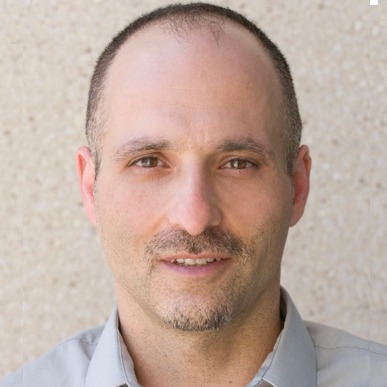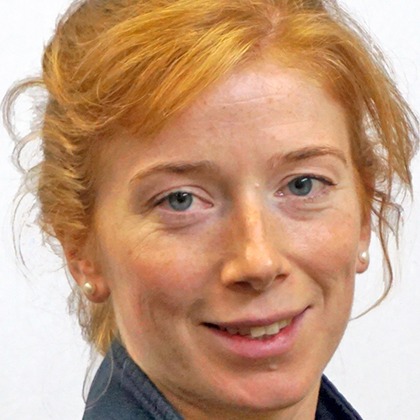Management of Colitis
Species
Equine
Contact Hours
3 Hours
Early Booking Deadline
Thu, 01 January, 1970
Registration Deadline
Thu, 01 January, 1970
Language
English
Discipline
Emergency & Critical Care
Internal Medicine – Endocrinology, Haematology, Infectious Diseases, Parasitology & Oncology
Pathology - Clinical & Gross
Toxicology & Pharmacology
Industry Partners
Global

Veterinary Partners
Global


Recorded on: 6th December 2022
Panelists:
Luis Arroyo Castro Lic. Med Vet., DVSc, PhD, DACVIM – University of Guelph, Canada
Tina Holberg Pihl DVM, PhD - University of Copenhagen, Denmark
Sarah Smith MA, VetMB, MVetMed, DACVIM, MRCVS - B & W Equine Vets, UK
Moderator:
Gary Magdesian DVM, DACVIM, DACVECC, DACVCP, CVA – University of California, Davis
CONTENT DESCRIPTION
Equine medicine has come a long way in improving accuracy and availability of diagnostics for enterocolitis in horses. However, up to 40-60% or more of colitis cases go undiagnosed. In addition, much of our approach to treatment is empiric or experience-based.
An international panel of renowned specialists with an interest in equine enterocolitis will discuss many controversial and timely topics, including:
- What agents are we missing?
- When is metronidazole indicated?
- Is fecal transfaunation helpful?
- Use of antibiotics in colitis
- Is plasma administration helpful?
- What is the evidence for anti-endotoxic drugs?
- Toxin binders – are they useful and how should they be employed?
- How often is sand the cause of colitis, and how to test for it?
- How can serum amyloid A and lactate help in diagnosing and monitoring, along with breed differences?
- Nutritional support of the hyporexic horse with colitis
- Etc.
Gary graduated from US Davis , and went on to undertake internships at Texas A & M University and a residency at UC Davis. Gary is a diplomate ACVIM ACVECC and ACVCP.
He currently holds the position of Professor of Veterinary Medicine at UC Davis. He has clinical interests in neonatology alongside research interests in neonatology and critical care, fluid balance, and has contributed to/published in excess of 130 papers.
Dr. Arroyo grew up on a rural farm along the pacific coast of Costa Rica. At the Universidad Nacional-Heredia, he trained as a veterinarian until he received his Lic. Med. Vet. in 1994. For the next few years, he practiced mixed animal medicine in rural Costa Rica. After gaining years of clinical experience, Dr. Arroyo decided to attend the Ontario Veterinary College (OVC) in Guelph, ON where he completed the large animal medicine Doctor of Veterinary Science (DVSc) program in the Department of Clinical Studies. Following his completion, he furthered his education by working towards a PhD in the Department of Pathobiology at OVC.
Dr. Arroyo is now board certified in large animal medicine with the American College of Veterinary Internal Medicine and has been a faculty member in the Department of Clinical studies since 2009.
His research interest is in large animal gastrointestinal disorders but, more recently, he has grown fond of equine vascular diseases with a focus on arteriosclerosis of the pulmonary artery of racehorses.
Sarah graduated from the University of Cambridge before undertaking an internship at Valley Equine Hospital in Lambourn, where she developed a love of foal medicine and youngstock care.
She then worked as an ambulatory vet in Sussex before joining the Royal Veterinary College as a resident in equine medicine. Whilst at the Royal Veterinary College, she undertook research into testing for insulin dysregulation and also into the impact of maternal obesity on the development of Thoroughbred foals.
In 2015 Sarah became a Diplomate of the American College of Veterinary Internal Medicine and worked as an equine medicine specialist at Rossdales Equine Hospital, in Newmarket, before joining the Equine Referral Hospital at Langford Vets in May 2017.
She is interested in all aspects of equine medicine but particularly in neonatology/stud farm medicine, neurology and cardiology. In her spare time she runs - spurred on by her german shorthaired pointer - and is attempting her first triathlon.
Tina Holberg Pihl currently works at the Department of Veterinary Clinical Sciences, University of Copenhagen. Tina does research in equine colic and the use of biomarkers for improved diagnosis and prognosis estimation. Her current focus is on the gastrointestinal parasite strongylus vulgaris and its relation to equine colic.
Veterinary Student
Online Panel Discussion
USD 35.00
Qualified Vet
Online Panel Discussion
USD 85.00
Intern/Resident (Requires proof of status)
Online Panel Discussion
USD 65.00
Vet Nurse/Vet Tech (Requires proof of status)
Online Panel Discussion
USD 65.00
If the options you are looking for are unavailable, please contact us.
No tax will be added unless you are a UK taxpayer
Choose currency at checkout


















